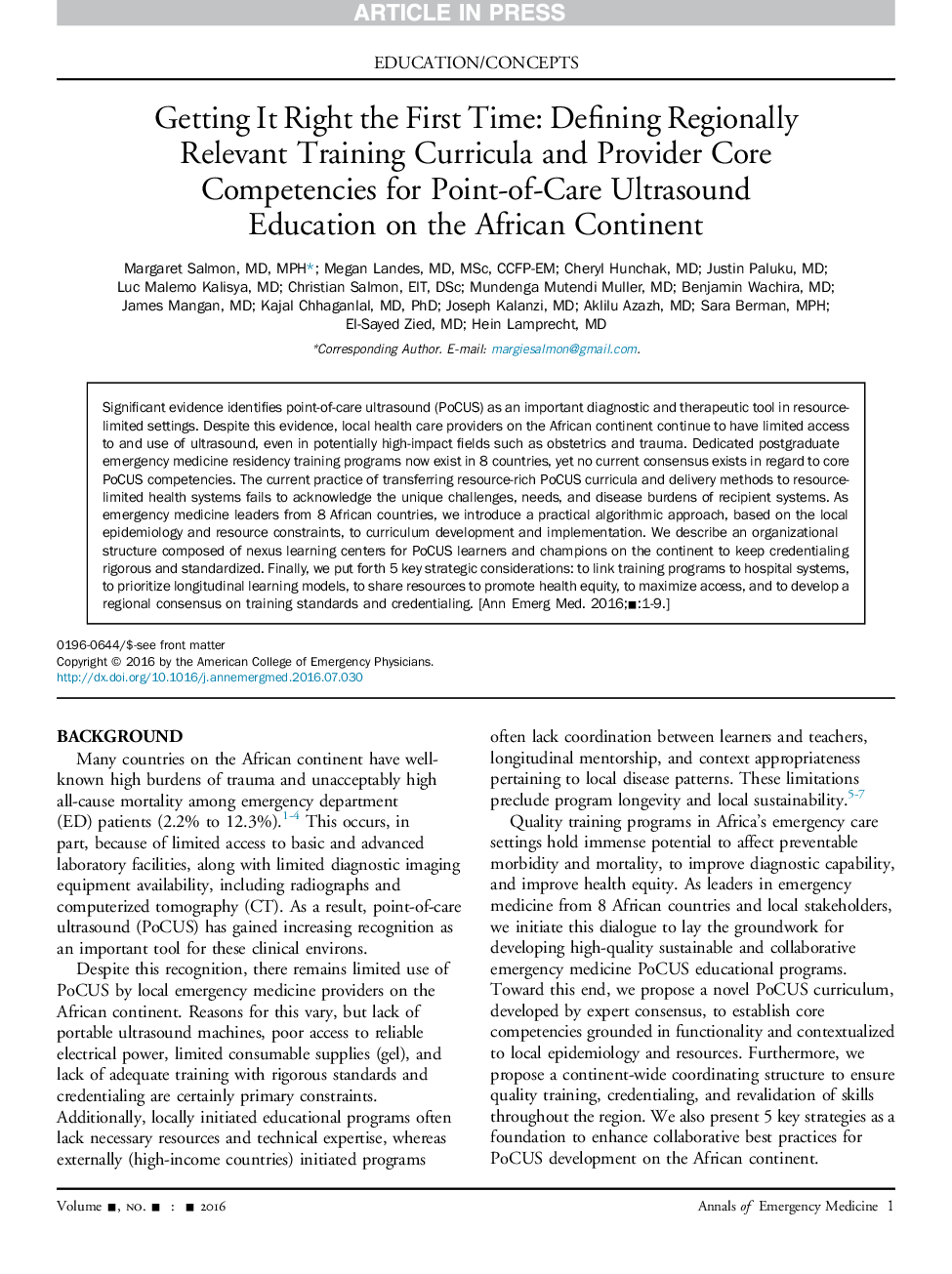| Article ID | Journal | Published Year | Pages | File Type |
|---|---|---|---|---|
| 5651818 | Annals of Emergency Medicine | 2017 | 9 Pages |
Abstract
Significant evidence identifies point-of-care ultrasound (PoCUS) as an important diagnostic and therapeutic tool in resource-limited settings. Despite this evidence, local health care providers on the African continent continue to have limited access to and use of ultrasound, even in potentially high-impact fields such as obstetrics and trauma. Dedicated postgraduate emergency medicine residency training programs now exist in 8 countries, yet no current consensus exists in regard to core PoCUS competencies. The current practice of transferring resource-rich PoCUS curricula and delivery methods to resource-limited health systems fails to acknowledge the unique challenges, needs, and disease burdens of recipient systems. As emergency medicine leaders from 8 African countries, we introduce a practical algorithmic approach, based on the local epidemiology and resource constraints, to curriculum development and implementation. We describe an organizational structure composed of nexus learning centers for PoCUS learners and champions on the continent to keep credentialing rigorous and standardized. Finally, we put forth 5 key strategic considerations: to link training programs to hospital systems, to prioritize longitudinal learning models, to share resources to promote health equity, to maximize access, and to develop a regional consensus on training standards and credentialing.
Related Topics
Health Sciences
Medicine and Dentistry
Emergency Medicine
Authors
Margaret MD, MPH, Megan MD, MSc, CCFP-EM, Cheryl MD, Justin MD, Luc MD, Christian EIT, DSc, Mundenga Mutendi MD, Benjamin MD, James MD, Kajal MD, PhD, Joseph MD, Aklilu MD, Sara MPH, El-Sayed MD, Hein MD,
